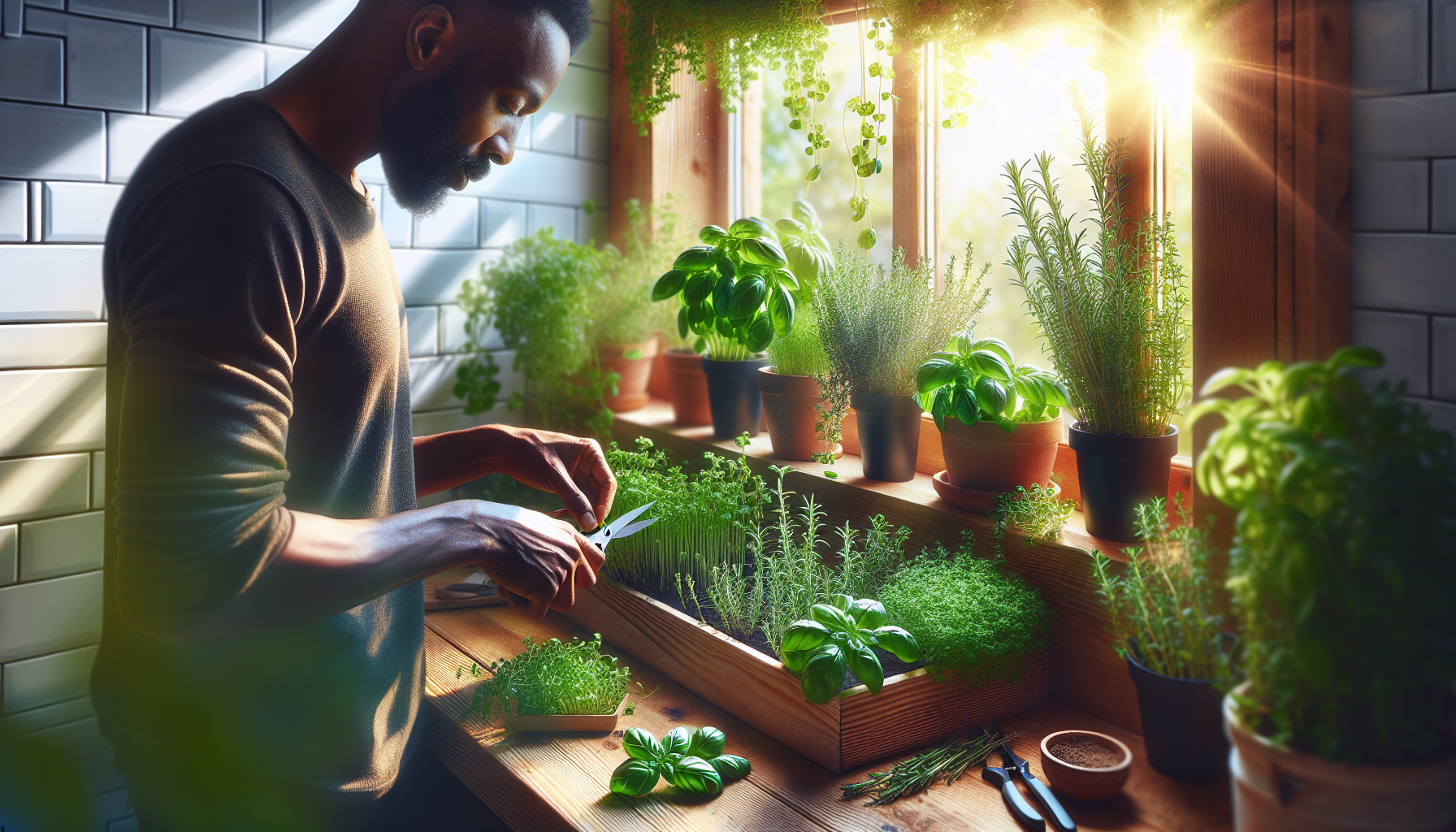Exploring Growing Organic Herbs in Window Boxes
Imagine stepping into your kitchen and snipping fresh, aromatic herbs right from a sunny windowsill. Whether you’re an urban dweller with limited space or a gardening enthusiast looking to add some greenery to your home, growing organic herbs in window boxes is a rewarding and practical solution. Not only do these herbs enhance your culinary dishes, but they also bring a touch of nature indoors. Let’s dive into the world of window box herb gardening and explore how you can start your own mini herb garden.
Choosing the Right Herbs for Your Window Box
Not all herbs are created equal when it comes to growing them in the confined space of a window box. Some herbs thrive in such environments, while others may struggle. Popular choices for window box gardening include basil, parsley, thyme, and oregano. These herbs are not only easy to grow but also versatile in the kitchen. For instance, basil is a fantastic addition to salads and pasta dishes, while thyme can elevate the flavor of roasted vegetables and meats.
When selecting your herbs, consider their sunlight requirements. Most herbs prefer at least six hours of sunlight daily, so choose a south-facing window if possible. If your window doesn’t receive enough direct sunlight, don’t worry; herbs like parsley and mint can tolerate partial shade. Additionally, think about the growth habits of the herbs. Some, like basil, can grow quite tall and bushy, while others, like thyme, stay more compact. A mix of taller and shorter herbs can create an aesthetically pleasing and functional arrangement.
Preparing Your Window Box
Before you start planting, you’ll need to prepare your window box. Choose a container that is at least 6 inches deep to give your herbs’ roots enough room to grow. Ensure that the box has drainage holes to prevent waterlogging, which can lead to root rot. You can line the bottom of the box with a layer of pebbles or broken pottery to improve drainage further.
Next, fill your window box with a high-quality, organic potting mix. Avoid using garden soil, as it can be too heavy and may contain pests or diseases. A good potting mix will provide the necessary nutrients and drainage for your herbs to thrive. Once your box is ready, you can start planting your herbs, spacing them according to their mature size to avoid overcrowding.
Caring for Your Herbs
Growing organic herbs in window boxes requires regular care to ensure they remain healthy and productive. Watering is crucial, but it’s important not to overwater. Check the soil moisture by sticking your finger about an inch into the soil; if it feels dry, it’s time to water. Most herbs prefer the soil to be moist but not soggy.
Fertilizing your herbs is also essential, especially since they’re growing in a confined space. Use an organic liquid fertilizer every few weeks to provide the necessary nutrients. Additionally, regular pruning and harvesting will encourage bushier growth and prevent your herbs from becoming leggy. Simply snip off the top few inches of the stems to promote new growth.
Pests can be a challenge, even in indoor gardens. Keep an eye out for common pests like aphids and spider mites. If you notice any, you can gently wash the leaves with a mild soap solution or use an organic insecticidal soap. Remember, maintaining a healthy environment for your herbs is the best defense against pests.
Harvesting and Using Your Herbs
One of the joys of growing your own herbs is the ability to harvest them fresh whenever you need them. Most herbs can be harvested as soon as they have enough foliage to sustain growth. For leafy herbs like basil and parsley, snip off the outer leaves, leaving the inner ones to continue growing. For woody herbs like rosemary and thyme, cut back the tips of the stems to encourage new growth.
Using your homegrown herbs is where the fun really begins. Fresh herbs can transform a simple dish into a culinary delight. Add chopped basil to your next tomato salad or sprinkle thyme over roasted potatoes. You can also dry your herbs for later use by hanging them in a cool, dark place until they’re completely dry, then store them in airtight containers.
Benefits of Growing Organic Herbs
Growing organic herbs in window boxes offers numerous benefits beyond just the convenience of fresh herbs at your fingertips. For starters, organic gardening avoids the use of synthetic pesticides and fertilizers, which is better for both your health and the environment. Studies have shown that gardening can also reduce stress and improve mental well-being Gardening and Mental Health. Plus, the act of nurturing plants can be incredibly rewarding and fulfilling.
Additionally, growing your own herbs can save you money in the long run. Fresh herbs can be expensive at the grocery store, and they often go bad before you can use them all. By growing your own, you can harvest exactly what you need, when you need it, reducing waste and saving money.
Troubleshooting Common Issues
Even the most experienced gardeners can run into issues when growing herbs in window boxes. One common problem is yellowing leaves, which can be caused by overwatering, underwatering, or nutrient deficiencies. Adjust your watering schedule and ensure you’re fertilizing regularly to address these issues.
Another issue you might encounter is poor growth or leggy plants, which can be due to insufficient light. If your window doesn’t provide enough sunlight, consider using grow lights to supplement the natural light. You can also rotate your window box periodically to ensure all plants receive equal light exposure.
Finally, if you notice your herbs aren’t producing as much as they should, it might be time to repot them into a larger container or refresh the soil. Over time, the nutrients in the potting mix can become depleted, so adding new soil or compost can give your herbs a much-needed boost.
Conclusion
Growing organic herbs in window boxes is a delightful way to bring a bit of nature into your home while enjoying the benefits of fresh, homegrown herbs. With the right selection of herbs, proper care, and a bit of patience, you can create a thriving mini herb garden that enhances your cooking and enriches your life. So, why not give it a try? Your kitchen (and your taste buds) will thank you.

